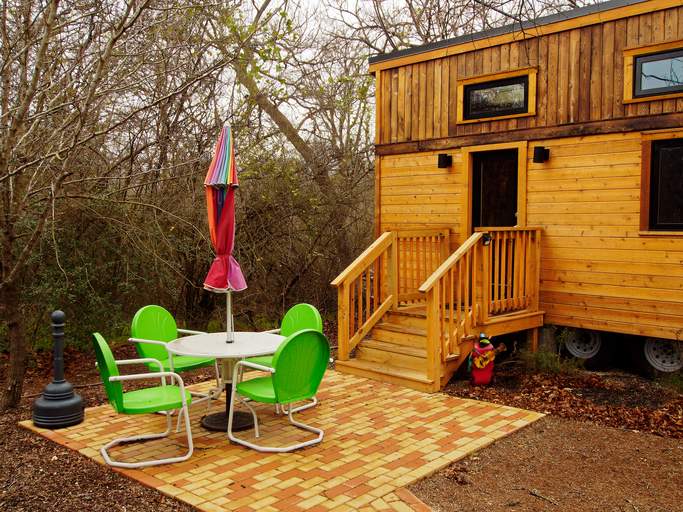Have you heard about the tiny house movement? As the name quite accurately suggests, it’s a growing movement of people who are giving up traditional residential housing in favor of structures that measure a maximum of 500 square feet (most measure between 225-400 square feet). Often, but not always, mobile, these tiny homes feature many of the comforts of a traditional house, just on a much smaller scale. Tiny homes make the most of small spaces by utilizing all available space with innovative storage solutions and furnishings designed to serve more than one purpose. 
You might be wondering why people would choose to abandon large, comfortable living spaces in favor of something so small. Of course, everyone’s reasons for making that decision vary, but some of the overriding philosophy includes minimizing one’s carbon footprint, living more simply, and pursuing true financial freedom. Even if you’re not ready to downsize to that degree, there are valuable lessons we can learn from the tiny house movement.
Evaluating Wants vs. Needs
How much space in your home do you dedicate to storing things you rarely, if ever, use? Probably more than you’d like to admit. Now, imagine if you only had enough space to store your necessities and a few meaningful keepsakes? That’s the reality of living in a tiny house. Living in a small space is on ongoing process of determining the difference between needs and wants, and making purchasing decisions based on that. You may not live in a tiny house now, but you can act as if you do. The next time you’re tempted to buy something you don’t really need, ask yourself if it serves an immediate purpose in your life. If not, pass it by.
Bigger Isn’t Always Better
According to data from the most recent U.S. Census, the average size of the American home continues to go up, even as average family size goes down. There’s a good chance we’re filling that extra space with stuff, along with having to heat, cool, clean and maintain more house than is actually needed. Start thinking about how much space you actually need and make housing decisions accordingly. Just because you can buy a bigger house, doesn’t necessarily mean you should.
It’s Possible to Own a Home Without Debt
For most Americans, a home mortgage is the most significant financial transaction they will ever undertake. And it’s one that keeps them tethered to debt for a good portion of their adult lives. Owning a tiny house, on the other hand, allows for home ownership without that ongoing burden. Make no mistake, those who live in tiny houses believe they are living the American Dream; they have just redefined it on their own terms.
Freedom is Priceless
Gone are the days of working for the same company for 20 years or more. Today’s economy demands that workers be flexible and mobile, something that’s hard to do when you’re tied to a mortgaged house, filled with possessions. Tiny houses give people the freedom to pick up and go when an excellent career opportunity presents itself. Tiny house living can also be a more affordable, less risky housing option for artists, writers, seasonal workers and others who make a living with inconsistent income.





